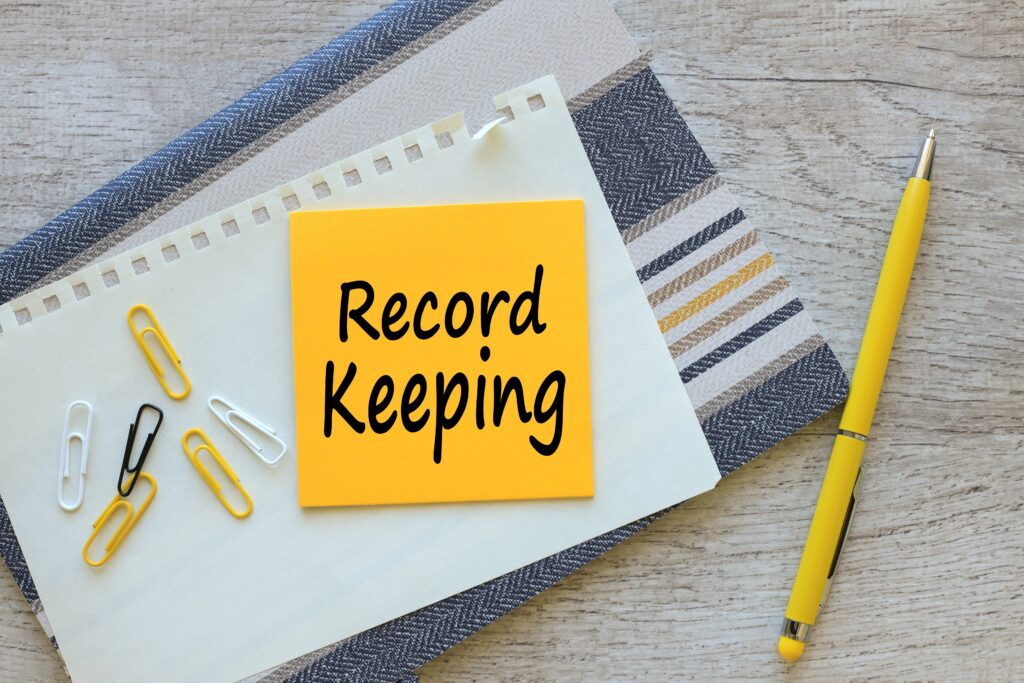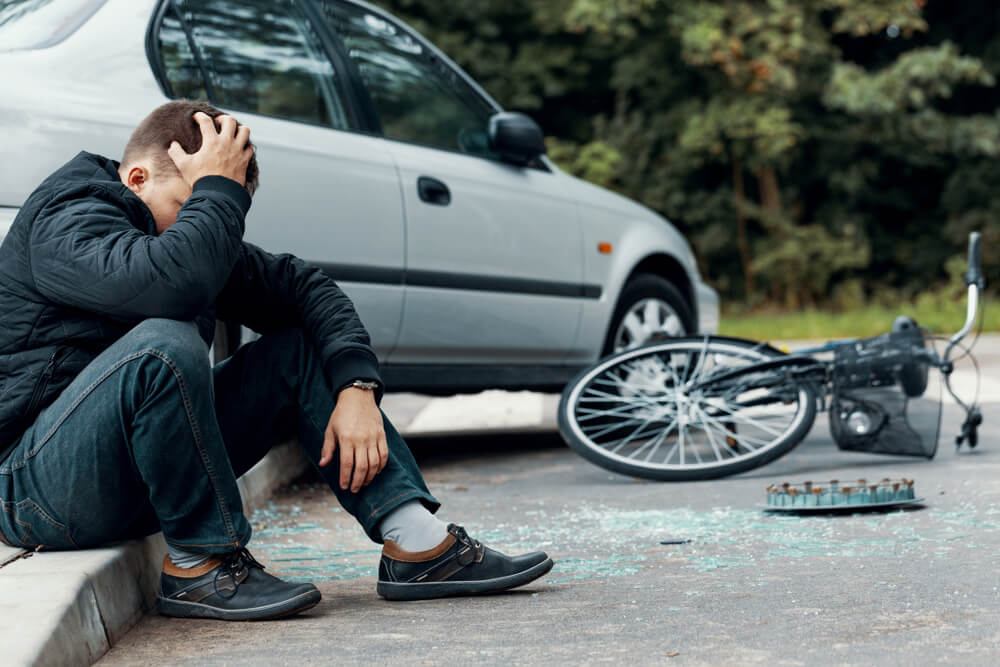Cycling through the streets of Chicago can bring a sense of freedom and joy, but a bike accident can disrupt that peace. If you’ve been involved in a bike accident, it’s normal to feel unsure of what to do next. You might be dealing with injuries, emotional trauma, and wondering how to protect your legal rights.
Take a deep breath and try to focus. Your well-being is the top priority, and there are steps you can take to protect yourself after a bike accident. A caring and knowledgeable bicycle injury lawyer can help you with your case.
Step 1: Prioritize Your Health and Safety
Immediately after the accident, the first thing you should do is focus on your health and safety. Even if you think your injuries are minor, taking the appropriate steps can make a huge difference in your recovery.
Check for Injuries
Bike accidents often result in injuries that aren’t always visible right away. You could experience anything from bruises and cuts to more severe injuries like fractures, concussions, or internal damage. Adrenaline can mask pain for hours or even days, so it’s essential to assess yourself and others involved for injuries and seek medical attention immediately.
If you’re unable to move or are experiencing severe pain, stay where you are and wait for emergency responders to arrive. Moving could worsen your injuries.
Seek Medical Attention Immediately
Even if your injuries don’t seem serious, it’s crucial to get checked out by a medical professional as soon as possible. Some injuries, like traumatic brain injuries or internal bleeding, might not show symptoms right away but could become life-threatening if left untreated.
Documenting your injuries with a healthcare provider also creates a record that could be important if you pursue a legal claim. Keep copies of medical records, diagnoses, and treatment plans, as these documents could serve as evidence later.
Call Emergency Services
Dial 911 to report the accident and ensure police and medical personnel are dispatched to the scene. This step is especially vital if you or someone else is seriously injured. The police will create an accident report, which could play an important role in your case later. Be honest but concise when providing information to law enforcement. Avoid speculating about fault or making statements like “I’m sorry,” as these could be misinterpreted.
Step 2: Document the Accident Scene

The evidence you gather immediately after the accident can be incredibly valuable. However, at the moment, it might not feel like a priority compared to addressing your injuries. That’s why having someone who can help you, such as a trusted family member, friend, or legal representative, is so important.
Take Photos and Videos
If you can safely do so, use your phone to take pictures and videos of the scene. Capture the following details:
- The location of the accident, including street signs and landmarks
- Damage to your bicycle and any vehicles involved
- Your injuries, as well as injuries to others involved
- Debris or hazards on the road that may have contributed to the accident
- Weather and road conditions at the time of the accident
These photos and videos provide a visual record of what happened and can serve as powerful evidence in building your case.
Gather Contact Information
Exchange contact and insurance information with the driver involved in the accident. If there were witnesses, try to get their names and phone numbers as well. Witnesses can provide statements later to support your claim.
Look for Nearby Security Cameras
Chicago is filled with surveillance cameras, including those on businesses, homes, and public streets. These cameras may have captured the accident, offering crucial evidence. The key, however, is to act quickly, as many systems automatically erase footage after a short period. Getting legal help immediately can be crucial in obtaining this footage before it’s lost.
Step 3: Report the Accident
File a Police Report
The police report is an official document that records the details of the accident, including statements from everyone involved. Ask the responding officers how you can obtain a copy of it. This report will help establish key details in your case, such as who was present at the scene and the officer’s observations.
Inform Your Insurance Company
If you carry auto insurance or have a separate coverage policy for cycling accidents, notify them as soon as possible. Be careful not to provide a recorded statement or accept a settlement without speaking to a lawyer first. Insurance companies may try to minimize payouts, and it’s critical to ensure you fully understand your rights.
Step 4: Avoid Delays in Taking Action

There are deadlines when it comes to pursuing legal claims, often referred to as the statute of limitations. It’s important not to delay contacting a lawyer because evidence can deteriorate, and witnesses may forget crucial details as time passes.
Evidence Can Be Lost
Over time, physical evidence like tire marks, debris, or damaged roadways may disappear. Security camera footage may be deleted, and witnesses might become harder to locate or less willing to cooperate. Gathering this information promptly ensures it can become part of your case.
Witness Memories Fade
Memories tend to fade quickly after a traumatic event. If witnesses aren’t contacted shortly after the accident, they might forget or misremember important details. A lawyer can locate and interview witnesses promptly, preserving their accounts while they are still fresh.
Step 5: Don’t Attempt to Handle Your Case Alone
Handling the aftermath of a bike accident on your own can add to the stress you’re already experiencing. A compassionate attorney can take that burden off your shoulders and advocate on your behalf so you can focus on healing.
Why You Need an Advocate
Personal injury cases can be complex, involving detailed evidence, negotiations with insurance companies, and sometimes even court proceedings. Without legal representation, you could risk receiving less compensation than you deserve. An experienced lawyer will know how to build a strong case, preserving critical evidence and navigating the legal system’s requirements.
Step 6: Focus on Your Recovery
While your lawyer works on your case, your job is to focus on healing. Follow your medical team’s advice, attend follow-up appointments, and take time to rest. Recovering from a bike accident can take time, physically and emotionally, so be patient with yourself and seek support when needed.
What a Lawyer Can Do for You

A skilled personal injury lawyer will:
- Investigate the Accident: Collect evidence, interview witnesses, and analyze police reports to build your case.
- Communicate with Insurance Companies: Insurance adjusters don’t have your best interests in mind. Your attorney will handle all communications with them to ensure your rights are protected.
- Negotiate a Fair Settlement: Your lawyer will aim to secure full compensation for your medical bills, lost wages, pain and suffering, and other damages.
- Prepare for Litigation if Necessary: If a fair settlement cannot be reached, your lawyer will prepare to take your case to court and fight for the justice you deserve.
Common Causes of Bike Accidents in Chicago
Understanding what causes bike accidents in Chicago can help you reflect on your own situation. While every accident is unique, certain factors frequently lead to collisions.
Distracted Driving
Drivers who are texting, eating, or otherwise distracted are less likely to notice cyclists on the road. This is one of the most common reasons for bike accidents in urban areas.
Failure to Yield
Many collisions occur because drivers fail to yield the right of way to cyclists, especially at intersections or when turning. Cyclists are often underestimated, leading to preventable accidents.
Dooring Accidents
“Dooring” happens when a parked driver opens their car door into the path of an oncoming bike, causing a collision. This is a particularly common hazard in a busy city like Chicago with its narrow streets and heavy traffic.
Poor Road Conditions
Potholes, loose gravel, and poorly maintained bike lanes can create dangerous situations for cyclists. Municipalities are responsible for maintaining safe roads, making this a factor worth investigating in any bike accident case.
Weather Hazards
Rain, snow, and fog can reduce visibility and make roads slippery, increasing the chances of accidents. This is especially true during Chicago’s unpredictable weather months.
By identifying the cause of your accident, your lawyer can better evaluate liability and build a strong case on your behalf.
Chicago-Specific Cycling Laws

Cyclists in Chicago have rights and responsibilities under city and state laws. Here’s a summary of some key regulations that help make the road safer for everyone.
Use of Bike Lanes
Chicago has an extensive network of bike lanes, and cyclists are encouraged to use them when available. However, drivers are required to respect these lanes and avoid blocking or encroaching on them. If a bike lane was obstructed during your accident, that could be a critical detail for your case.
Sidewalk Cycling
Cycling on sidewalks is prohibited in business districts unless posted otherwise. This law is intended to minimize conflicts between pedestrians and cyclists.
Helmet Use
While Illinois does not mandate helmet use for cyclists, wearing one is highly recommended. If you weren’t wearing a helmet during your accident, don’t worry; it doesn’t automatically mean you were at fault.
Dooring Law
Chicago has specific laws against “dooring.” Drivers and passengers are required to check for cyclists before opening their car doors. Failing to do so could make them liable in the event of an accident.
Understanding these laws can help you recognize whether your rights were violated.
FAQs About Bike Accidents in Chicago
What If I Wasn’t Wearing a Helmet?
If you weren’t wearing a helmet during the accident, it’s natural to worry about how that might affect your case. While helmets provide critical protection, Illinois does not require them by law. Even if you weren’t wearing one, you can still pursue compensation for your injuries. The key is to focus on the other party’s negligence, such as reckless driving or failure to yield.
Can I Still File a Claim If I Was Partially at Fault?
Yes, you can still file a claim. Illinois follows a system of comparative negligence, meaning you can recover damages as long as you were less than 50% liable for the accident. However, your compensation may be reduced by the percentage of fault assigned to you. A lawyer can help determine how this applies to your case.
What If the Driver Left the Scene?
If a driver fled the scene of the accident, it’s considered a hit-and-run, which is illegal. You should report this to the police immediately. An attorney can investigate further to track down the driver, possibly through witness accounts or security camera footage.
How Long Do I Have to File a Claim?
While the statute of limitations in Illinois typically allows a few years to file a personal injury claim, it’s crucial to act sooner than later. Evidence can disappear, and memories fade. Contact a lawyer immediately to ensure all deadlines are met.
Should I Speak to the Insurance Company?
It’s best to avoid giving a recorded statement or accepting a settlement offer from an insurance company without consulting a lawyer first. Insurance adjusters may try to downplay your claim to minimize payouts, but a lawyer will advocate for the compensation you truly deserve.
We’re Here to Help
Experiencing a bike accident is traumatic, and the path forward might feel uncertain, but you don’t have to face it alone. At Abels & Annes, P.C., our dedicated legal team is here to support you every step of the way.
Whether you need guidance on what to do next or are ready to take the first step in your legal case, we’re here to help 24/7. Contact us today to get the legal representation you need.
